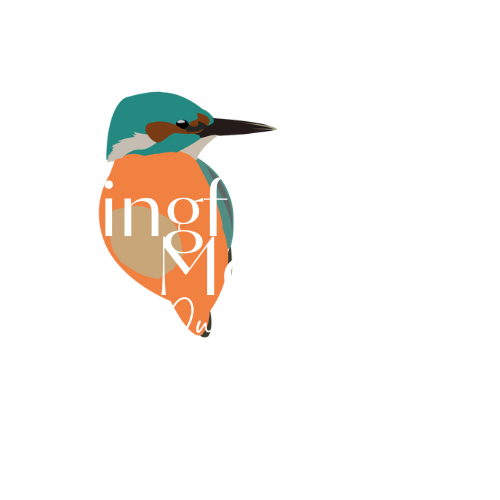Most people view artificial intelligence as a tool, like fire, something to be mastered, manipulated, or feared. But AI, like fire, is also an environment. It has reshaped the landscape we now inhabit, whether we acknowledge it or not.
The question is not whether AI will spread, but how we will engage with it.
I didn’t always see things this way.
Eleven years ago, I picked up The Science of Getting Rich by Wallace Wattles. At first, it seemed like another personal development book. A thought leader I respect recommended reading it, and even though it took some getting used to stylistically, something in it stuck with me:
Its insistence that success, wealth, and personal growth come from a certain way of thinking and acting.
I kept returning to its pages, drawn by its clarity and challenge to my thinking. Over the years, it has become less of a book and more of a blueprint, shaping how I approach creativity, business, and now, the evolving role of AI.
Wattles argues that wealth is created not through competition, but by applying a disciplined and expansive mindset. The same is true for AI literacy. Keeping up with technology is not enough. What matters is cultivating a way of thinking that allows you to work with intelligence—both artificial and human—deliberately and effectively.
The Fourth Principle: Thinking Beyond the Surface
In the fourth principle of his book, Wattles makes it clear that you must think in a certain way if you want to succeed. That way is not reactive, not shaped by fear, but by vision. It took me a while to “get” this. Fire is neither good nor evil. It simply burns. It can light a path or consume everything in its way.
AI functions the same way. It magnifies what you put into it. If AI worries you, you will most likely find your worries confirmed. If you view it as a tool for personal growth and learning, you'll find ways to integrate it into your work and thinking that lead to new discoveries and desired results.
I remember the first time I used an AI tool to generate ideas for my writing. At first, I was skeptical.
Could this really help? Would it take something away from my own creative process? Was it violating copyright laws? Was it cheating?
But after testing the waters and seeing what it could do, I realized I was thinking about it wrong. AI wasn't something to either fear or blindly trust. Or use verbatim. Like fire, it was a tool I needed to learn how to use before I could get from it what I wanted. Once I saw it as a collaborator rather than a shortcut, my attitude changed.
Like everything else in life, AI reflects the mindset we bring to it.
Enter with limitation, and you will find limits.
Enter with curiosity, and you will find possibility.
Experimenting with AI tools has shown me both.
The Seventh Principle: The Invisible Foundation of Skill
The seventh principle in The Science of Getting Rich reminds readers that real value is created when we offer more than we take. Skill is not just about knowledge but about how we apply it. Many treat AI literacy as a technical problem, something that can be solved with more courses or certifications. Technical knowledge only goes so far.
A match in untrained hands is dangerous. In skilled hands, it provides warmth and light. AI is only as powerful as the person using it. Those who ask better questions, frame problems in new ways, and see patterns others miss will always have an advantage over those who rely on it for easy answers.
AI literacy is less about tools and more about the quality of thinking behind them.
When I first started integrating AI into my creative work, I expected it to do something for me. And I’ll admit: it did. For a minute.
But the real power comes when I use it to think with me.
AI is definitely not a shortcut. Yes, it saves time on mundane tasks like editing and formatting documents. And, I've also discovered it requires more time for applying creativity to what it generates so that the finished results are useful, relevant, and of service.
The Fourteenth Principle: Acting Now, with Certainty
In the fourteenth principle, Wattles warns against waiting for the perfect moment, the ideal conditions, or complete understanding before deciding to do something.
He writes, Do not wait for the right opportunity—create it.
I agree with this philosophy and am often one of the first people to run down the dock and jump into the lake. AI is not waiting for us to feel ready. It is already reshaping industries, accelerating ideas, and shifting economic power. The time to engage is now.
Decide. Experiment. Learn.
The Real Prize of AI Literacy
Ultimately, Wattles’ core idea is that wealth is not merely material.
It is the capacity to think and act in ways that create opportunities for personal growth and service.
AI literacy follows the same principle. Knowing every algorithm or the latest technology matters less than having the mindset to see opportunities others miss.
And thank goodness for that. Because honestly, I’m not interested in how AI works under the hood, only that I can learn how to make it work for me so that what I create makes a difference to others.
I'm confident AI won’t replace my mind, and it won’t replace yours, either, if you take these ideas to heart.
The choice is ours. Will we think in a certain way?
